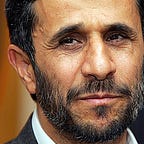Internets,
The term Black Girl Magic is ridiculous on its face. It sounds like the name of a Stones record that had to be left off of Exile for fear of offending the NAACP.
“Come give me some of that black girl magic…”
It’s been in the news — and trending on Twitter — because it’s the name of a feature in a new issue of Essence. The magazine selected a group of girls, hardly any of whom I’m familiar with, that they feel represent Black Girl Magic, not unlike XXL’s annual Freshman 10 issue.
Maybe this will become an annual thing for them, sponsored by toxic hair-care products and the military, complete with its own heavily branded subsite, videos and live events. But who will they select next year? This year’s selections are already straining the notability requirements for a stub in Wikipedia, let alone a magazine cover.
Johnetta “Netta” Elzie (an alias, according to Breitbart — why, I’m not sure) appears on one of the covers of this year’s issue. This seems ridiculous to me, not because she doesn’t have any business being on the cover of a magazine, because of her looks (it’s not that kind of magazine), but because it seems unbecoming of a civil rights leader.
Nothing about the Netta cover of Essence suggests to me black men lying dead in the street. To look at it, you’d hardly know who she was and why she’s on the cover. Instead, it looks like fap material for guys in Africa and BBW aficionados. Cole James Cash will almost certainly be copping this month’s issue, if he’s not already a subscriber.
And so the first Black Girl Magic-related controversy had to do with people making fun of Netta for being fat. Or rather, fear that someone might make fun of Netta for being fat.
I clicked on her name when it was trending, the other day, and all I saw was, on the hand, those glamour shots of her looking like Hey Kool-Aid, and on the other hand, people complaining about how terrible it was that people were making fun of her. I didn’t actually see anyone making fun of her.
It could be that Deray, who has direct, red-telephone access to Twitter HQ in San Francisco (where, ironically, people beat black people up for so much as lingering in the street in front of the building), was having people banned from Twitter the moment they so much as fixed their fingers to make a fat joke, and that’s why they weren’t showing up in the feed.
Anyway, I found myself reminded of that time when I accidentally checked Twitter during that Tidal b-sides concert and found several members of the Male Beyhive having imaginary arguments about whether or not Jay Z is the greatest rapper of all time.
That’s becoming an increasingly common thing on Twitter: clicking on a trending topic and finding nothing but sad, delusional fans mounting a preemptive defense of something no one else cares enough about to insult in the first place.
Which brings us back to Black Girl Magic.
The hashtag was back in the news again the other day, not because this is an especially good week for black women (RIP David Bowie), but because a black woman writing for a white magazine had the sheer balls to call BS on Black Girl Magic. No Caitlyn Jenner.
In white-interest fashion magazine Elle, an obscure black academic argued against use of the hashtag on the basis that it might lead people to think that black women, like David Blaine, really are capable of magic, and hence, for example, it might cause doctors to not give black women as much anesthesia as they would give a white woman.
No, really. That’s what she said.
(Separately, a white female tech blogger argued that if you click on the Black Girl Magic hashtag, it turns up a lot of gross cleavage shots that guys might use “for their own personal amusement,” thus potentially providing a man with satisfaction, and also that it could easily be hijacked by 4chan.)
Black People Twitter promptly lit up with people taking the girl from Elle magazine to task, pontificating about what Black Girl Magic actually means, engaging in virtue signaling for the purpose of boosting their own personal brands, posting pictures of random black chicks with Buhweet hairdos, so on and so forth.
Many a think piece soon appeared, with writers congratulating themselves for understanding that Black Girl Magic isn’t actual magic in the Harry Potter sense of the term (RIP Alan Rickman) and criticizing the girl who wrote the anti-Black Girl Magic article for doing so in a white magazine, while themselves writing for white-owned publications like Essence and The Root.
Ironically, the response to the Elle article is emblematic of the real problem with Black Girl Magic, which is that it serves to highlight achievement that isn’t actually achievement. It celebrates the beauty of girls who aren’t that attractive and the leadership of activists who haven’t succeeded in getting a cop thrown in jail.
It’s a sort of high-tech version of when my grandma used to tell me how “handsome” I was, likely fearing what life had in store for a child with such unfortunate genetics. If only she knew. LOL
Take it easy on yourself,
Bol
Originally published at tinyletter.com.
